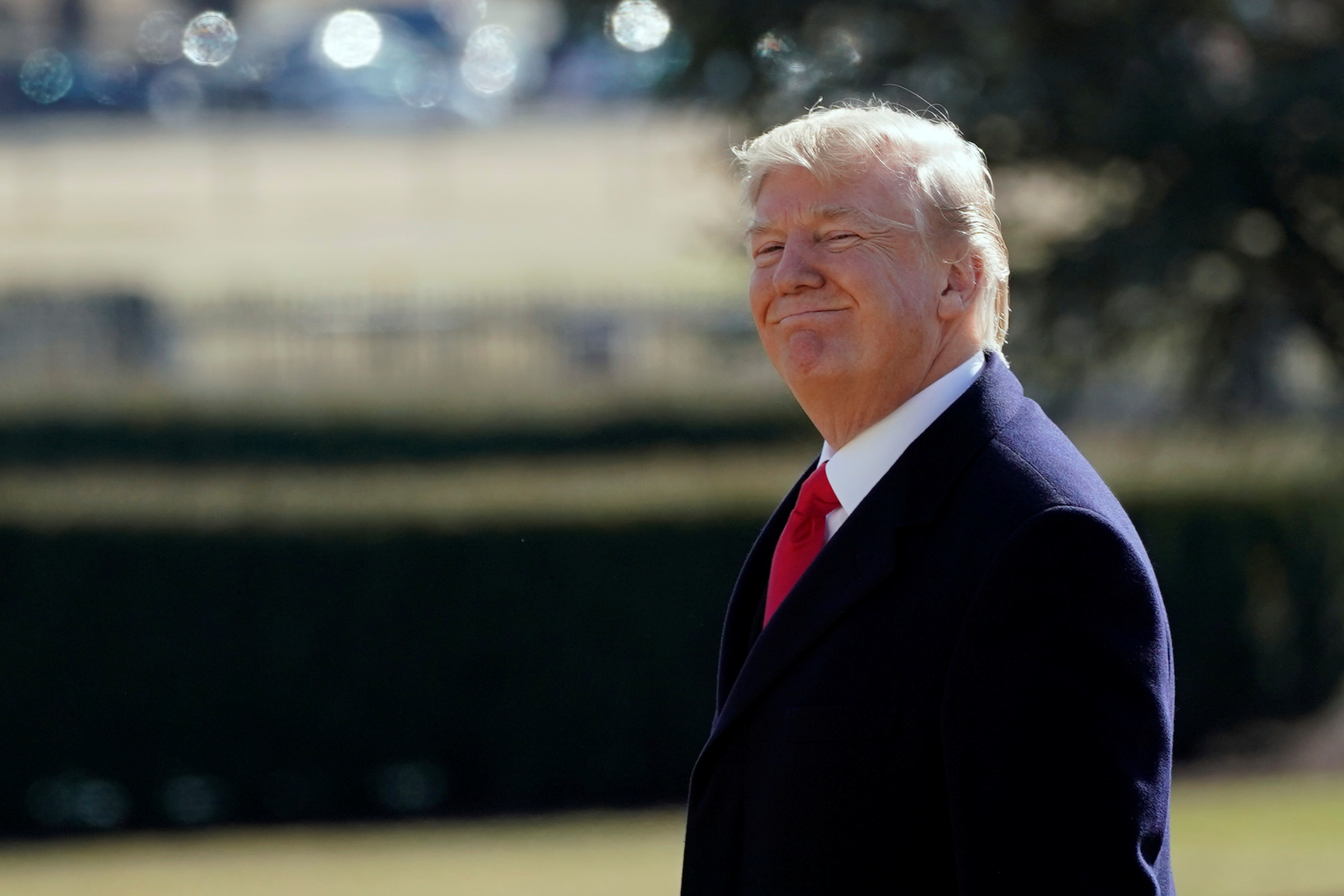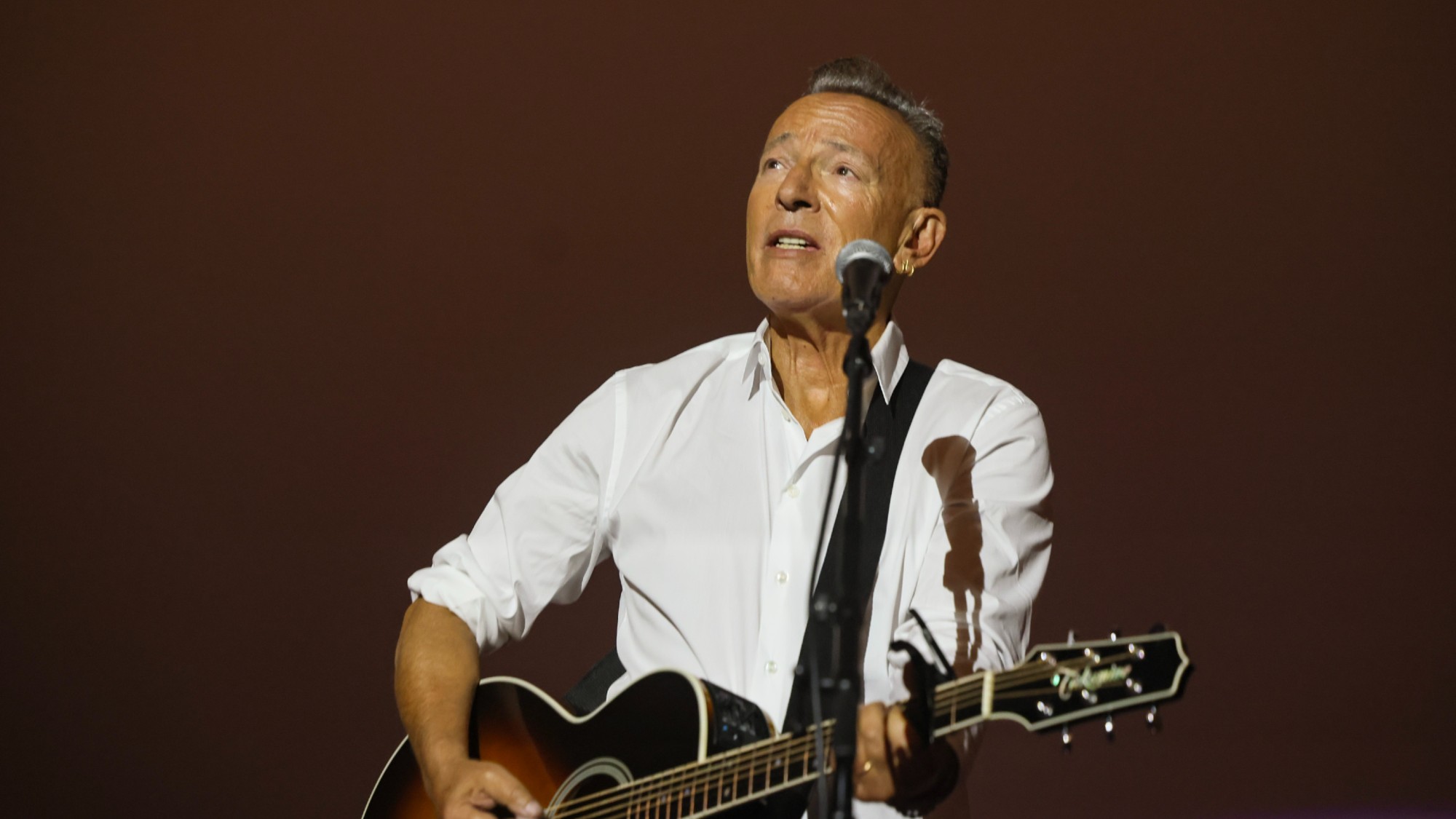Why Trump feasts on scandal
He is the anti-hero president


There's a certain kind of compelling anti-hero who has long populated fiction, one whose lack of social or moral constraint makes him an interesting character. Unlike the rest of us, who are kept in line by fear of the law or social opprobrium, or just a sense of right and wrong, these characters do whatever they want. They cheat, they steal, they hurt those around them, and it's the fact that they get away with it (at least for a while) that makes them fascinating. Whether it's a mafioso making his own rules or a sociopath killing anyone who displeases him, these portrayals can help us understand the structures that keep society operating in a reasonable fashion; they also offer us the chance to fantasize a bit about what it would be like to live without constraint.
While we sometimes see fictionalized portrayals of anti-hero politicians, in the real world we expect them to be just the opposite: Not just regular people possessed of the standard combination of virtues and vices, but better and more upstanding than the rest of us. We may not ask for proof a candidate has lived a life without sin before we'll vote for him or her, but pretty darn close. There's an entire profession, "opposition research," devoted to figuring out what politicians have done wrong either professionally or personally and how it can be used against them.
The result is that relatively minor transgressions are often blown up to absurd proportions, so that — to take a random example — using the wrong email address can be characterized as evidence of a profound and deep corruption of the soul that should disqualify someone from ever holding office. It all reinforces the idea that only candidates with impeccably pure histories are worthy of your vote.
The Week
Escape your echo chamber. Get the facts behind the news, plus analysis from multiple perspectives.

Sign up for The Week's Free Newsletters
From our morning news briefing to a weekly Good News Newsletter, get the best of The Week delivered directly to your inbox.
From our morning news briefing to a weekly Good News Newsletter, get the best of The Week delivered directly to your inbox.
Which brings us to the the latest story about President Trump's adulterous affairs (you knew we were going there). Last week began with Trump's personal lawyer claiming that right before the end of the 2016 campaign he used his own money to "facilitate" a payment of $130,000 to the adult film actress who goes by the name Stormy Daniels in order to secure her silence about an affair with Trump. Then the week ended with the story of how the National Enquirer, a Trump ally, bought the silence of a former Playboy model named Karen McDougal with whom Trump also had an affair. The Enquirer did so with a technique known as "catch and kill," in which they paid McDougal for the rights to her story for the purpose of making sure it never became public, forcing her to sign a restrictive non-disclosure agreement.
When stories like these emerge and are the subject of a few days of amused news coverage and then disappear, it's impossible to avoid saying "imagine if this had been Barack Obama" or "imagine if this had been Hillary Clinton." We know how differently they would have been treated — seriously, imagine for a moment what would have happened if Obama had an affair with a porn star and paid her $130,000 in hush money. But Trump scandals are different, because Trump is so different.
This was the dilemma the news media faced from the moment of his entry into the presidential race. Anyone who knew anything about Trump knew he was one of those anti-heroes, someone who had moved through life with only the barest concern about society's rules and norms. He cheated on his wives, he cheated people in business, he ran high-profile scams like Trump University, he'd even go on the radio and brag about bursting into the dressing room of pageant contestants so he could catch them undressing.
So how should they cover each new potential Trump scandal? For an ordinary politician, journalists know the drill. Once one of their number discovers something juicy, the rest swing into action. Media organizations assign multiple reporters to the story, who then fan out and begin asking questions, combing through records, looking for people with information, and discovering everything they can. Over the course of days and weeks, the collective endeavor will produce multiple stories — maybe dozens or even hundreds — hopefully painting a full picture of what happened and what its significance is.
A free daily email with the biggest news stories of the day – and the best features from TheWeek.com
On the other hand, there are plenty of times when someone like a political opponent shops a potential scandal to news organizations, and they decide there isn't much there and don't bother pursuing it. Or they may write one or two articles about it and then move on.
That's what happened over and over with Trump during the campaign. It wasn't that his dozens of potential scandals weren't covered at all, but that there would often be a story in one news outlet about some shady financial deal or sordid liaison, and no one else would pick it up. It would pass by with barely any notice. To take just one example, do you remember the Trump Network? It was a pyramid scheme in which you'd send in a urine sample and they'd send you back vitamins supposedly tailored to your personal metabolism. There were a couple of stories about it, and almost nobody bothered to follow up. Likewise, a story about Karen McDougal actually appeared in The Wall Street Journal right before Election Day; you probably missed it.
With most politicians, there's a presumption on the part of both the politician themselves and the reporters covering for them that they're acting according to society's rules, and when they transgress those rules, it's news. But Trump doesn't care about the rules, which leaves reporters somewhat flummoxed. He's barely bothering to deny the affairs and hush money (other than some perfunctory statements that it's all "fake news," which no one believes), just as he hires his family members and uses the presidency as a vehicle for personal profit. It's just what he does, so it's no surprise.
Now let's take a contrasting scandal, the one about former White House Staff Secretary Rob Porter. The strangest thing about that controversy is how it has lasted longer and been explored in more detail than scandals that actually involve the president himself. Reporters have pursued the story aggressively, trying to learn who knew about the accusations of domestic violence Porter's wives made against him and when, what happened when those accusations became public, and other issues springing from this one, like the fact that over 100 White House staffers are operating with interim security clearances, raising questions about why full clearances have been delayed. In other words, they've approached it like an ordinary scandal.
I'd argue it's precisely because Trump is only peripherally involved that the Porter story has been treated that way. Journalists know how to report a story like this one, and they're applying familiar rules. But they're still not sure how they should deal with scandals involving the president himself.
There's no question that the demand we place on politicians to have lived a life utterly free of transgression goes to unfair and even absurd lengths. But nobody expected we'd ever get a president like Trump, someone so completely unmoored from personal morality or any sense of shame. And we're still not sure how to deal with it.
Paul Waldman is a senior writer with The American Prospect magazine and a blogger for The Washington Post. His writing has appeared in dozens of newspapers, magazines, and web sites, and he is the author or co-author of four books on media and politics.
-
 Why is Tulsi Gabbard trying to relitigate the 2020 election now?
Why is Tulsi Gabbard trying to relitigate the 2020 election now?Today's Big Question Trump has never conceded his loss that year
-
 The best fanfic that got published and went mainstream
The best fanfic that got published and went mainstreamThe Week Recommends Fan fiction websites are a treasure trove of future darlings of publishing
-
 ‘Something close to a universal rallying cry’
‘Something close to a universal rallying cry’Instant Opinion Opinion, comment and editorials of the day
-
 The billionaires’ wealth tax: a catastrophe for California?
The billionaires’ wealth tax: a catastrophe for California?Talking Point Peter Thiel and Larry Page preparing to change state residency
-
 Bari Weiss’ ‘60 Minutes’ scandal is about more than one report
Bari Weiss’ ‘60 Minutes’ scandal is about more than one reportIN THE SPOTLIGHT By blocking an approved segment on a controversial prison holding US deportees in El Salvador, the editor-in-chief of CBS News has become the main story
-
 Has Zohran Mamdani shown the Democrats how to win again?
Has Zohran Mamdani shown the Democrats how to win again?Today’s Big Question New York City mayoral election touted as victory for left-wing populists but moderate centrist wins elsewhere present more complex path for Democratic Party
-
 Millions turn out for anti-Trump ‘No Kings’ rallies
Millions turn out for anti-Trump ‘No Kings’ ralliesSpeed Read An estimated 7 million people participated, 2 million more than at the first ‘No Kings’ protest in June
-
 Ghislaine Maxwell: angling for a Trump pardon
Ghislaine Maxwell: angling for a Trump pardonTalking Point Convicted sex trafficker's testimony could shed new light on president's links to Jeffrey Epstein
-
 The last words and final moments of 40 presidents
The last words and final moments of 40 presidentsThe Explainer Some are eloquent quotes worthy of the holders of the highest office in the nation, and others... aren't
-
 The JFK files: the truth at last?
The JFK files: the truth at last?In The Spotlight More than 64,000 previously classified documents relating the 1963 assassination of John F. Kennedy have been released by the Trump administration
-
 'Seriously, not literally': how should the world take Donald Trump?
'Seriously, not literally': how should the world take Donald Trump?Today's big question White House rhetoric and reality look likely to become increasingly blurred
